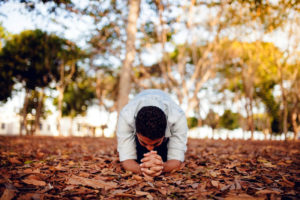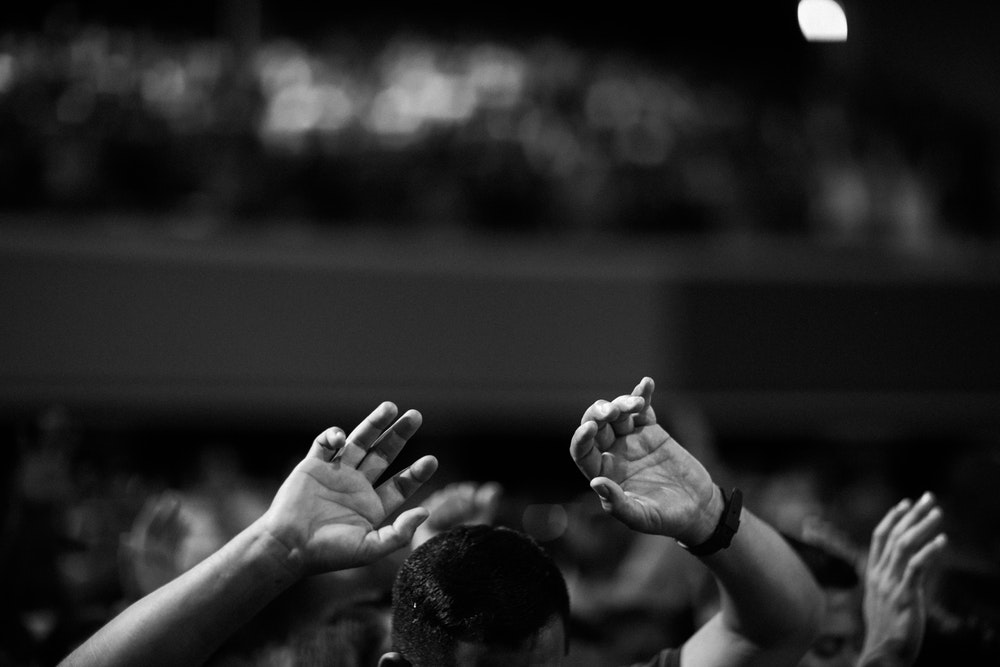There is nothing new under the sun (Ecclesiastes 1:9). Yes, this includes the current pandemic surrounding the Coronavirus. God is well-acquainted with events like this, it’s just new to us.
In Scripture, the term used to describe a pandemic was “pestilence” or “plague”. According to Google, “pestilence” is defined as “a fatal epidemic disease.” Coronavirus is not the first fatal epidemic disease, and it is certainly not the last.
But, as the world scrambles in chaos, worry, and panic, you and I must remember God and turn to His Word to understand the cause and treatment for anything that He would allow us to face.
The Healing Power of Repentance and Righteousness
 As I studied the Word of God (KJV), I began to dissect each of the 48 mentions of the word “pestilence” and noticed that they were permitted to enter the world (and at times sent by God) for judgment and punishment due to wickedness of man. Interestingly, the wickedness was not exclusive to non-believers but included the people of God. Colossians 3:6 says that the wrath of God comes on the children of disobedience; this means that the presence of pestilence or what we call pandemics are a sign that God is displeased.
As I studied the Word of God (KJV), I began to dissect each of the 48 mentions of the word “pestilence” and noticed that they were permitted to enter the world (and at times sent by God) for judgment and punishment due to wickedness of man. Interestingly, the wickedness was not exclusive to non-believers but included the people of God. Colossians 3:6 says that the wrath of God comes on the children of disobedience; this means that the presence of pestilence or what we call pandemics are a sign that God is displeased.
Here is when I began to see something powerful. Considering yourself a child of God by confession does not automatically grant you immunity to God’s judgment or include you in the promises of God.
There were times that God turned on Israel because of their wicked actions (Amos 2:6-8). But there is a specific type of person the promises of God identify. Who are they? The righteous. David said, “I never seen the righteous forsaken nor his seed begging bread.” (Psalm 37:25) He didn’t say, “the people of God.”
You may think, “Aren’t all people of God considered righteous?” No.
You see, Christianity is evidential through the confession of our hearts and the works of our life. The grace of God never eliminates the pursuit of righteousness (Proverbs 15:9). John the Baptist said it best, “show forth fruits meet for repentance.” God should be able to see your confession of Christ by the way you live.
People often misinterpret the biblical concept of Abraham and his belief. The Bible says, “…Abraham believed God, and it was counted unto him for righteousness.” (Romans 4:3) Yet James 2:19 says that demons believe God.
So, does mere belief equate righteousness? Are demons righteous? No.
Abraham’s belief was solidified in his obedience that followed the confession of his heart. It was no different than when he went up Mount Moriah to sacrifice Isaac. God was sure of Abraham’s fear of Him, not only in his “yes”, but in the rising of Abraham’s hand to slay his son (Genesis 22:12).
I Say These Things Because I Love You.
As a servant of God and His people, I find it a disservice when people are soothed and not given the truth. The prophets of old came with the Word of God and sometimes it was uncomfortable. The people were scared when Samuel came to town, wondering did he come in peace (1 Samuel 16:4). As a servant of God, I have no choice in the assignment; my responsibility is to deliver.
I could come with all the comforting scriptures, but if I fail to reveal the truth, the Word of God would appear false because there is no manifestation of change. I could not say I truly loved you if I knew the cure to disease and never offered it to you.
So, with all that is going on in the world, the help to the people of God is in two words…
Repentance and Righteousness
2 Chronicles 7:13-14
13 If I shut up heaven that there be no rain, or if I command the locusts to devour the land, or if I send pestilence among my people;
14 If my people, which are called by my name, shall humble themselves, and pray, and seek my face, and turn from their wicked ways; then will I hear from heaven, and will forgive their sin, and will heal their land.
This passage of scripture provides the cure. The Bible says that if the people of God would turn from wickedness, then God will hear and heal. It does not require the repentance of the world – but the Christian.
What About the Plagues During Moses’ Time?
Indeed, another time when plagues occurred is when God was about to deliver His people. I sought God on the matter, and believe there is a two-fold event happening.
God is about to do something special for His righteous, but there is a great cry from the heavens urging people to repent. As I prayed for the world, I asked the Lord to make the people desperate. God replied, “The people are desperate, just not for me.”
Sadly, we live in a world where people want the blessings of God, but don’t want to live for Him. God likens it to offering a homeless person food and they reject it, asking for a cigarette or beer instead.
This is how people are right now; they are rejecting the bread of life (Jesus) for fleshly gratification.
SO, WHAT’S THE PLAY CALL?
Teammates, God is looking for people who will not only profess their faith in Jesus Christ but live a life that represents their confession. Repentance and living a righteous lifestyle does not mean we are perfect or without a struggle. It simply means constantly pressing toward God by rejecting sin and living a life that is pleasing to Him.
Romans 12:1 says it’s our reasonable service to present our bodies as a living sacrifice. When we accept Christ, our life is no longer our own. He is the Lord and Governor of souls.
What we do should not be based upon our desire, but His. When this happens, we will receive healing in the land. If pestilence comes into the land, the righteous can run into the strong tower of the Lord and be safe.
I pray this helps you.




